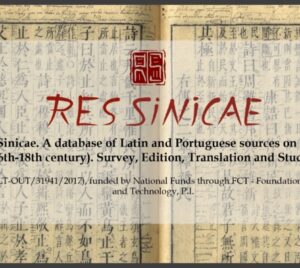
HPRT 7. SAPIENTIA ASIATICA: Early Modern Latin and Portuguese texts on Asia
Sapientia Asiatica is the result of a cohesive and organic work done by a multidisciplinary team bringing together Latinists, Philologists, Linguists, Sinologists, Paleographers and Historians who have produced research in this area. The work of surveying, inventorying, studying and editing ancient texts is silent and apparently invisible and arduous, especially when texts require the first ever translation into a modern language. The team achieved a remarkable level of output with the project Res Sinicae, making available unpublished documents in Latin and Portuguese about China, from the sixteenth to the eighteenth century, on a digital platform. The project aimed to increase knowledge both on intercultural relations between Portugal and Ming/Qing China, and on the Portuguese contribution for the production and circulation of European knowledge on China and vice-versa. After consolidating its research on China/East Asia, the group will extend its object of study to other Asian regions, namely South and Southeast Asia in the early modern period, to survey, inventory, analyze and edit crucial little known or unpublished texts in Latin, Portuguese or in other modern European languages. Funded Project (2018-2022): A Database of Latin and Portuguese Sources on China (16th-18th Century). Survey, Edition, Translation and Studies (PTDC/LLT-OUT /31941/2017) (https://www.ressinicae.letras.ulisboa.pt/?lang=en).






